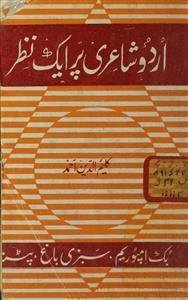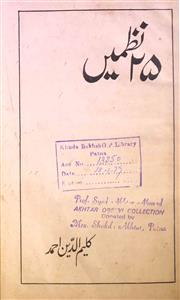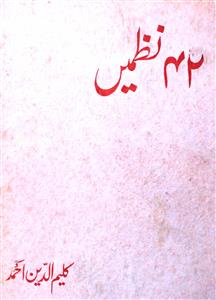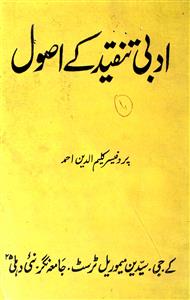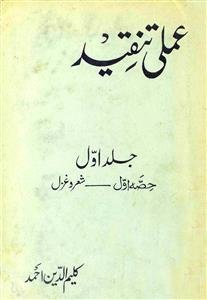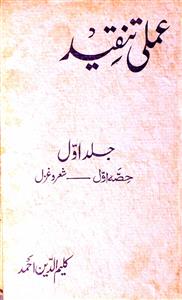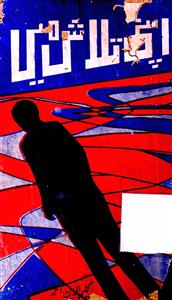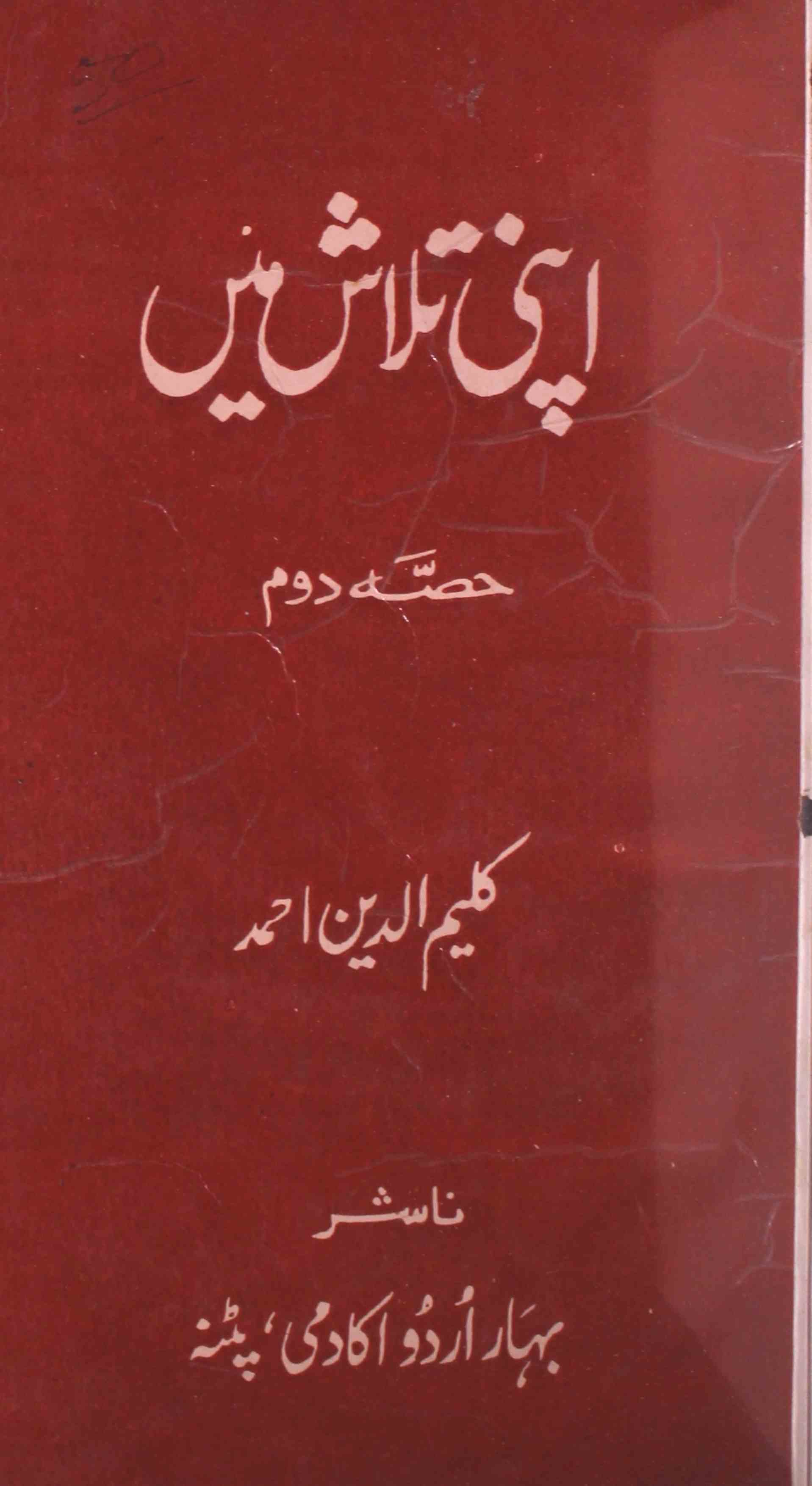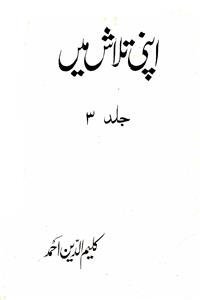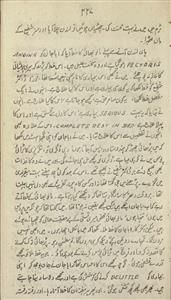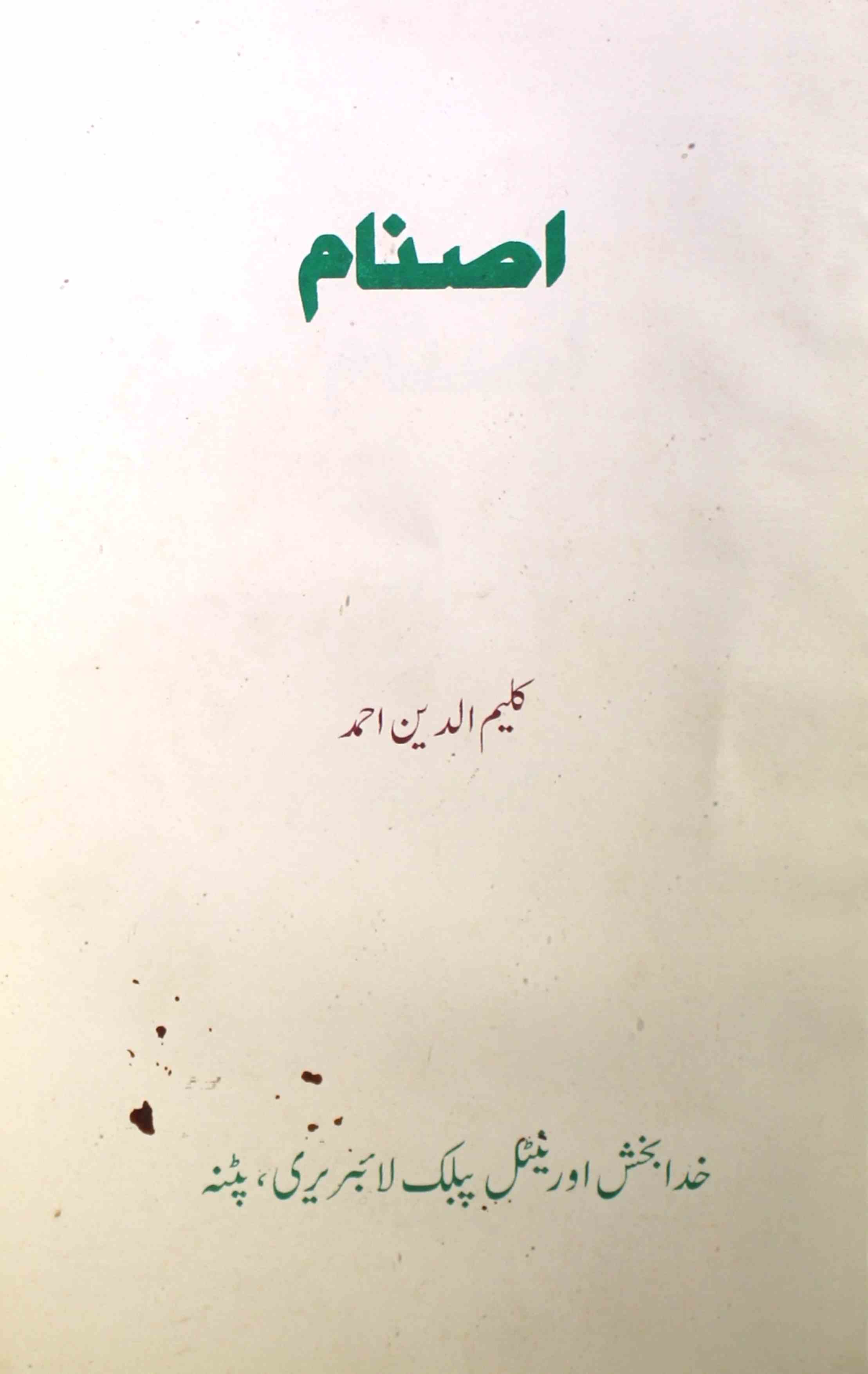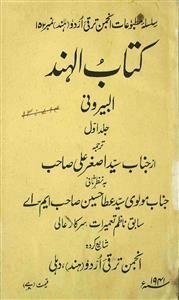 For any query/comment related to this ebook, please contact us at haidar.ali@rekhta.org
For any query/comment related to this ebook, please contact us at haidar.ali@rekhta.org
About The Book
کلیم الدین احمد سے قبل ار دو میں کئی ناقد تھے اور تنقید پر بہت کچھ لکھا بھی جا چکا تھا۔مگر کلیم الدین احمد اردو تنقید کی دنیا میں جیسے ہی داخل ہوئے تو ایک زلزلہ ساآگیا ہے ۔گویا وہ اس طریقے سے داخل ہوئے جیسے کوئی مست ہاتھی شیشہ کی دکان میں داخل ہوجائے ۔ ان کی تنقید دراصل انگر یزی ادب سے مرعوبیت کے نتیجہ میں وجود میں آئی تھی جس کی وجہ سے انہیں اردو کا سارا سرمایہ حقیر اور بے وقعت سا لگا ۔ انہوں نے اردو تنقید پر بہت ہی زیادہ سخت گیری کی پھر بھی ان کی تنقید سے اردو ادب کو بہت زیادہ فائدہ پہنچا ۔ انہوں نے جس طرح سے تنقید کی رہنمائی کی اور اپنی اس کتاب سے جو بیش قیمت اضافہ کیا وہ قدر و منزلت کی نگاہ سے دیکھا گیا ۔ یہ کتاب دو حصوں پر مشتمل ہے پہلے حصہ میں کلاسیکل شعرا کی شاعر ی پر بحث ہے جس میں غزل ، قطعہ ، قصیدہ ، ہجو، مثنوی ، مرثیہ کا خصوصی ذکر ہے ۔ نظیر اکبرآبادی کو بھی خصو صی درجہ دیا ہے ۔ کتاب کے دوسرے حصے میں انجمن پنجاب کے شعرا سے فراق تک کا ذکر ہے ۔ انہوں نے اردو شاعری کی خوب تنقید کی اسی ضمن میں غزل کو ’’ نیم وحشی صنف سخن ‘‘ تک کہا اور اردو تنقید کا وجود انہیں فرضی اقلیدس کے خیالی نقطہ اور معشوق کی کمر کی طرح موہوم نظر آیا ۔ الغر ض وہ اردو کے اہم ناقد تھے او ر ان کی یہ کتاب اردو شاعری کی تنقید پر اولیت کا درجہ رکھتی ہے۔ زیر نظر کتاب حصہ اول ہے۔
About The Author
Born Rahimuddin Ahmed, and lovingly called Rahmuu at home; when enrolled at school his name was changed to Kaleemuddin Ahmed. He has expounded upon this incident in several pages in his book ‘Apni Talash Mein’, Volume I (Cultural Academy, Gaya). This book, which spans over three volumes, encompass his life and circumstances elaborately.
Kaleemuddin's early education took place at home. His father Azeemuddin Ahmed was a man of knowledge whose effects on his son were going to be far-reaching. Azeemuddin took a personal interest and concern in his son’s education. His family, too, was scholarly. He was educated in the United Kingdom and was also the President of the Department of Urdu and Persian at Patna University and held a special position in the University. His grandfather Shah Waizuddin Ahmed was also a learned man. His grandmother's father Hakim Abdul Hameed ‘Pareeshan’ was a noted poet from Azimabad.
After domestic education, he was admitted to the Muhammadan Anglo-Arabic School, Patna City in 1921. From the beginning, Kaleemuddin Ahmed spoke very little and was interested in reading Ghalib. He matriculated in 1924 but in Second Division. In 1928, he enrolled in BA English Honors and passed with distinction. When he was in the final year of his Masters, he received a government stipend to go to London to pursue a higher degree. Thus, in 1930, he left for London in 1930 and returned in 1933 after receiving his Tripos degree. He then joined the Department of English at Patna University.
Before moving to London, Kaleemuddin Ahmed was married to Safia Begum, daughter of Abdul Hafeez, whom he called Hani. When she died, Kaleem-ud-Din Ahmed married his elder sister-in-law Zahra Begum in 1937. In 1939, he he published his father Azeem-ud-Din Ahmed's poetry collection "Gul-e-Naghma". His father passed away in 1949. In 1940, his book "Urdu Shayari Par Ek Nazar” was published. In 1944, "Urdu Zaban Aur Fann-e-Dastan-Goi" came to the fore. In 1977, he became Deputy DPI in the Bihar Government. In 1978, he published, ‘Psychoanalysis and Literary Criticism’. In 1952, he became the Principal of Patna College, Patna, and also the Dean, Faculty of Arts. In 1955, "Sukhan-Haa-e-Guftani" was published. In 1958, he became the DPI. In 1959, the first volume of "Do-tazkire" (Tazkira Shorash and Tazkira Ishqi) was published. In 1963, came out ‘Diwan-e-Jahan’, and in the same year, the second part of "Do-tazkare" was published. In 1965, ‘42 Nazmen’, and in 1966, ’25 Nazmen’ was published. He retired from government service on September 14, 1967. In 1968, ‘Amali Tanqid’ was published. In 1973, Wajid Ali Shah's letters to Begums were published under the name "Tarikh-e-Noor". In the same year he was presented the Ghalib Award. In January 1975, the first volume of the autobiography "Apni Talash Mein’" was published. Soon the second volume followed. In 1975, "Kulliyat-e-Shad" was compiled and published. In 1976 came out ‘Meri Tanqid: Ek Baz-Nazar”. In 1979, ‘Iqbal: Iqbal Mutala’ was published. In 1980, he became the Vice President of Bihar Urdu Academy. In 1981, the Government of India conferred the title of Padma Shri.
From the aforementioned works, it can be inferred that Kaleem-ud-Din Ahmed actively contributed to the field of Urdu literature throughout his life. His introvert nature, allowed him to spent more time in the company of books and satiated his bent for knowledge. This presented him with abundant opportunities for writing and composing. Therefore, he is one of the critics of Urdu literature who has been constantly discussed and debated not only in his time but also till today. Books have been written on him, research dissertations and thesis have also been written. One can say that after Shad Azimabadi, the pivotal literary axis of Azimabad shifted to Kaleem-ud-Din Ahmed.
Most of Kaleemuddin Ahmed's books have been controversial. A little background about his style of criticism, too, is important. In 1923, the quarterly magazine "Scrutiny" was started from Cambridge in 1923 under the editorship of FR Lewis. and continued to be published for 21 years. It emphasizes the text and critiques the literal expression of words. This is the school that impressed Kaleemuddin. A cursory study of ‘Urdu Shayari Par Ek Nazar’ shows that he has not only rejected many important poets but also attributed one Nazeer Akbarabadi as one the greatest Urdu poets. To some extent Shams-ur-Rehman Farooqi or other critics who consider the text and only the text as sufficient for critique and analysis have a relationship with Kaleem Sahib at some level. This is the background from which an understanding of Kaleem-ud-Din Ahmed's style of poetic criticism and his critical forms can be well understood. It is not enough to just write that Kaleemuddin Ahmed is Westernized. In fact, he is not interested in all the principles of the West. Rather, the limited scope, as the Cambridge School of Criticism calls it, is their scope.
His most surprising claim came when he adduced, ‘Ghazal Ek Niim-Wahshi Sinf Hai’, or Ghazal is a semi-savage genre. He attacked Ghazal which centers around the non-existent waist of an imaginary Beloved, dismissed the literary movements that prevailed, disapproved the Nazms that poets were composing, and called Hali an ordinary critic. He also rejected Iqbal’s and Anis’s poetry and blasted a learned scholar like Hasan Askari. In short, all the literary personalities that were considered venerable in Urdu, he tried to scathe them. But Nazir Akbarabadi, a poet who was hitherto rejected by classical critics, was afforded a distinguished stature by him. He also discerned the significance of Dastans and brought to light the insights of it. The position taken by him to denounce and look down upon the established construct of Urdu literature and criticism seems to be a deliberate one. Although his place in the history of Urdu criticism will remain reserved and respected, but his approach to extremism will continue to be criticized.
 For any query/comment related to this ebook, please contact us at haidar.ali@rekhta.org
For any query/comment related to this ebook, please contact us at haidar.ali@rekhta.org
Write a Review
Jashn-e-Rekhta 10th Edition | 5-6-7 December Get Tickets Here
